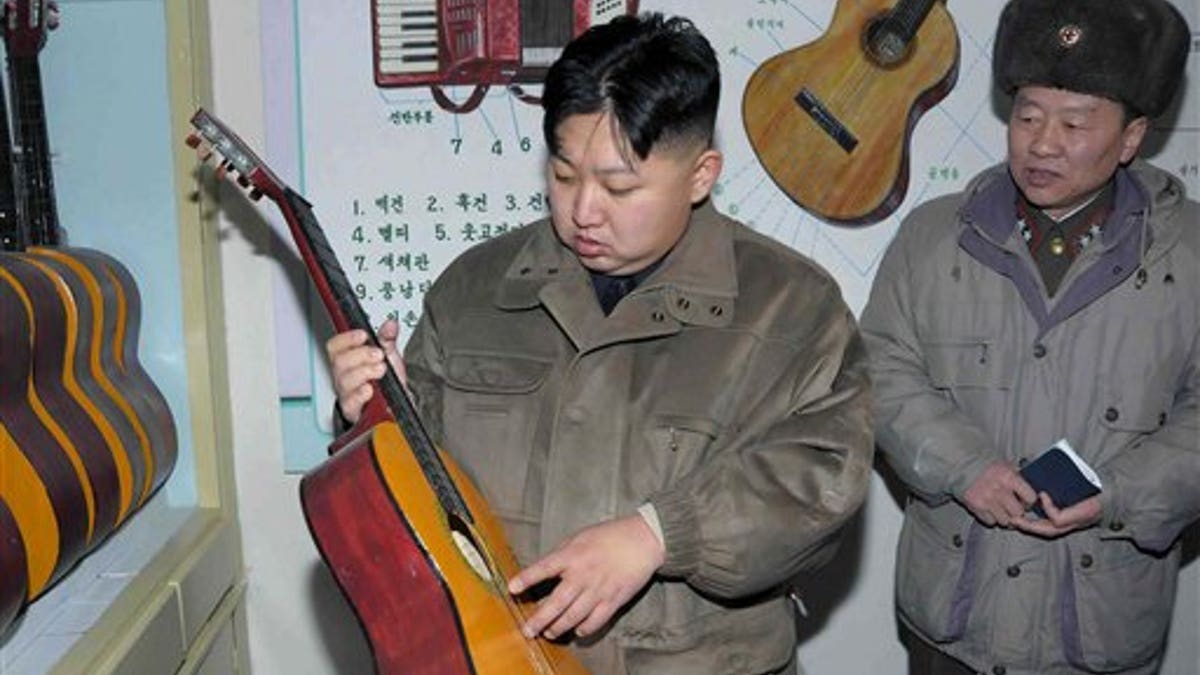
Jan. 19: In this undated photo released by the Korean Central News Agency and distributed in Tokyo by the Korea News Service, North Korean leader Kim Jong Un, center, looks at a guitar at an undisclosed location in North Korea. (AP)
WASHINGTON – The United States is ready to start a new chapter in relations if North Korea takes steps on nonproliferation, but it is too early to discern the intent of the country's new leadership, the top US diplomat for East Asia said Thursday.
Assistant Secretary of State Kurt Campbell said the US wants a resumption of the six-nation nuclear disarmament-for-aid talks that the North withdrew from in 2009.
But he said the US first wants to see improved relations between North and South Korea, a key US ally.
Shortly before North Korea's longtime leader Kim Jong Il died a month ago, wartime enemies the US and the North appeared close to a deal on food aid. The North was expected to suspend uranium enrichment -- the main hurdle to restarting the six-party talks.
Kim's death and the transfer of power to his untested son Kim Jong Un has injected fresh uncertainty into that process, and for security on the divided peninsula, where two military attacks on the South in 2010 nearly pitched the two Koreas into war.
Campbell told a seminar at the Stimson Center think tank in Washington that it was too early to characterize the new North Korean leadership and its policy priorities.
"We have made clear both through public channels and privately that we are prepared to start a new chapter to deal clearly with outstanding issues, nuclear matters and the like," he said.
He said the US has an enduring concern that further provocation by North Korea against the South could prompt a military response from Seoul, which he said had shown "remarkable restraint."
Campbell said the US has told China -- North Korea sole major international ally -- to convey that message to the North.
The two Koreas are divided by a heavily militarized frontier, a legacy of the 1950-53 war that ended with an armistice but not a full peace treaty. Nearly 30,000 US forces are still based in South Korea.
The North has tested two nuclear devices despite commitments it made to denuclearization in 2005 as part of the six-party process. It wants to restart those negotiations that also include China, Japan, Russia, South Korea and the US as a way to get large scale assistance for its struggling and energy-starved economy. Washington and its allies want the North to first take actions to show it is serious about the previous commitments.
North Korea last week questioned Washington's generosity and sincerity, but indicated it remains open to suspending uranium enrichment in exchange for food aid.










































